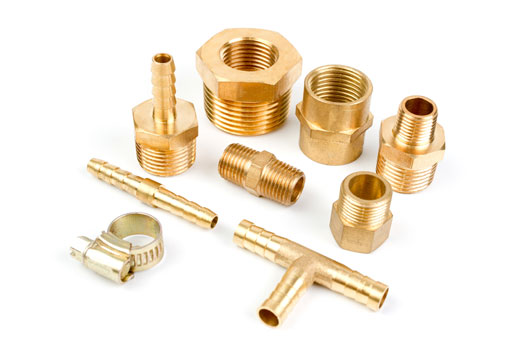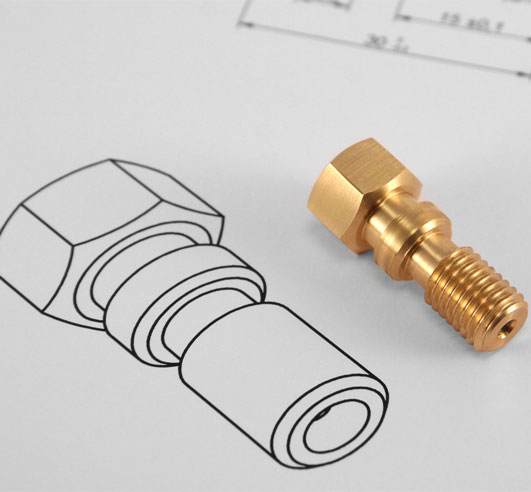In the world of precision machining, brass CNC turning is a popular option for producing intricate and versatile components. This process leverages the power of computer-aided design (CAD) and computer-aided manufacturing (CAM) technologies to create parts with remarkable accuracy. As a result, a wide range of industries such as automotive, electronics, aerospace, and construction rely on brass CNC turning for their manufacturing needs.
However, when it comes to the cost of brass CNC turning, there are several factors that potential customers must consider. In this blog post, we will dive deeper into these factors and discuss how they affect the overall pricing of brass CNC turning services.
Material Costs
One of the primary factors influencing CNC turning costs is the price of the raw material itself. Brass, a copper-zinc alloy, has unique properties such as machinability, corrosion resistance, and strength that make it a popular choice for various applications. However, the cost of brass fluctuates due to market conditions and demand. Suppliers need to take these fluctuations into account when determining the price of their brass CNC turning services.
Complexity of Design
The complexity of the design can significantly impact the overall cost of brass CNC turning. Whether it's a simple washer or a complex hydraulic valve, the design of the part affects the amount of material required, machining time, and the types of tooling necessary. Additionally, the more intricate the design, the higher the chance for errors and the need for more complex CAM programming.
Tolerances and Precision
Tight tolerances and stringent surface finishes are essential factors that can impact the price of brass CNC turning services. High precision parts require more elaborate machining processes, specialized tooling, and increased quality control measures. Meeting these demanding specifications ultimately increases the cost of CNC turning.
Volume and Order Quantity
The volume of parts required and the size of the order are also crucial factors affecting CNC turning costs. Larger volumes can benefit from economies of scale, with the cost per part decreasing with an increase in quantity. However, smaller orders can incur higher per-part costs due to setup time and tooling costs.
Machining Time
Longer machining times lead to higher costs in the brass CNC turning process. The machining time is affected by several factors, including design complexity, material removal, tolerances, and the type of machinery used.
Labor and Overhead
Labor and overhead costs include wages, employee benefits, facility expenses, and utilities - all of which contribute to the brass CNC turning prices. Companies situated in regions with high labor costs or expansive overhead expenses may need to adjust their prices accordingly.
Specialized Services
Apart from the factors discussed above, specialized services such as plating, heat-treatment, or surface finishing may require additional costs. If a part needs to undergo a unique process, the additional services will impact the total cost of the CNC turning project.
Tips to Lower Brass CNC Turning Costs
While the factors mentioned above play a significant role in pricing, customers can take certain steps to lower the overall cost of their brass CNC turning projects.
Utilize standard tolerances: Rather than specifying tight tolerances for every dimension, consider using standard tolerances for non-critical dimensions. This can minimize machining time and help reduce costs.
Design for manufacturability: By optimizing your design for CNC machining, you can decrease production time and potentially lower overall costs. Seek feedback from your CNC turning supplier to identify possible design improvements.
Request a volume discount: If your project requires a large number of parts, ask your supplier about volume discounts that may be applicable.
Select the right material: Consider if there are alternative materials available that can achieve the same objectives at a lower price point. Brass, while advantageous for many reasons, might not always be the most cost-effective option.
While customers need to consider these factors when evaluating brass CNC turning prices, it is essential to balance cost considerations with the quality and reliability of your final product. Engaging in open and collaborative conversations with your CNC turning supplier will help you navigate pricing options while ensuring high-quality, sustainable results.
brass cnc turning price







